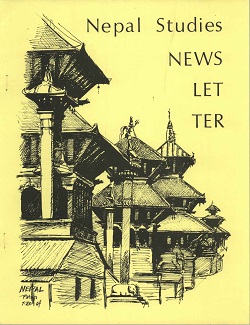Author Biography
Rachel H. Pang (PhD, Religious Studies, University of Virginia, 2011) is Assistant Professor of Religious Studies at Davidson College. Dr. Pang’s research focuses on Buddhist auto/biography, Tibetan poetry, the nineteenth-century ecumenical movement, and the collected works of Shabkar Tsokdruk Rangdröl (1781-1851). Her work has appeared in Numen, Journal of Buddhist Ethics, Revue d’Etudes Tibétaines, and a/b: Auto/biography Studies.
Abstract
This paper examines the concept of ‘Tibet (Tib. bod)’ in the spiritual autobiography of the celebrated Tibetan Buddhist author, Shabkar Tsokdruk Rangdröl (1781–1851). I use both literal and literary modes of analysis in conjunction with Steven Grosby’s and Lama Jabb’s definitions of ‘nation’ to demonstrate how Shabkar initially builds a vivid persona— the ‘Singer of Tibet’—that is rooted in the Tibetan landscape, but then shifts to a different persona— ‘Shabkar’—that transcends Tibet altogether and embraces a sense of Buddhist universalism. Throughout the process, Shabkar evokes deities and historical figures that are fundamental to Tibetan historical, cultural, and religious memory and alludes to customs and tropes central to Tibetan culture, such as orality, song, and the bardic tradition. In addition to demonstrating the efficacy and potency of literary tropes in creating the sense of an imagined nation, this essay makes a contribution to the ‘Where is Tibet?’ debate by exploring how Tibetan identity is articulated in one of the great masterpieces of classical Tibetan Buddhist literature.
Acknowledgements
The author would like to thank Holly Gayley and the anonymous reviewers at HIMALAYA whose excellent suggestions improved this paper in fundamental ways. Thanks is also due to the participants and audience of the “Literature from the Himalayas: Rethinking the Region, Re-imagining the Identities” panel at ANHS’s Himalayan Studies Conference in Boulder (2017) - Lama Jabb, Pushpa Raj Acharya, Ranjan Adiga, Alok Amatya, Pallabi Gupta, Anu Thapa, Kritish Rajbhandari for their sincere and lively engagement with the ideas in an earlier version of this paper that helped expand the discussion of the role of literature in articulating identities.
Creative Commons License

This work is licensed under a Creative Commons Attribution-Noncommercial-No Derivative Works 4.0 License.
Recommended Citation
Pang, Rachel H.. 2018. The Singer of Tibet: Shabkar (1781-1851), the “Inescapable Nation,” and Buddhist Universalism. HIMALAYA 38(1).
Available at:
https://digitalcommons.macalester.edu/himalaya/vol38/iss1/9


